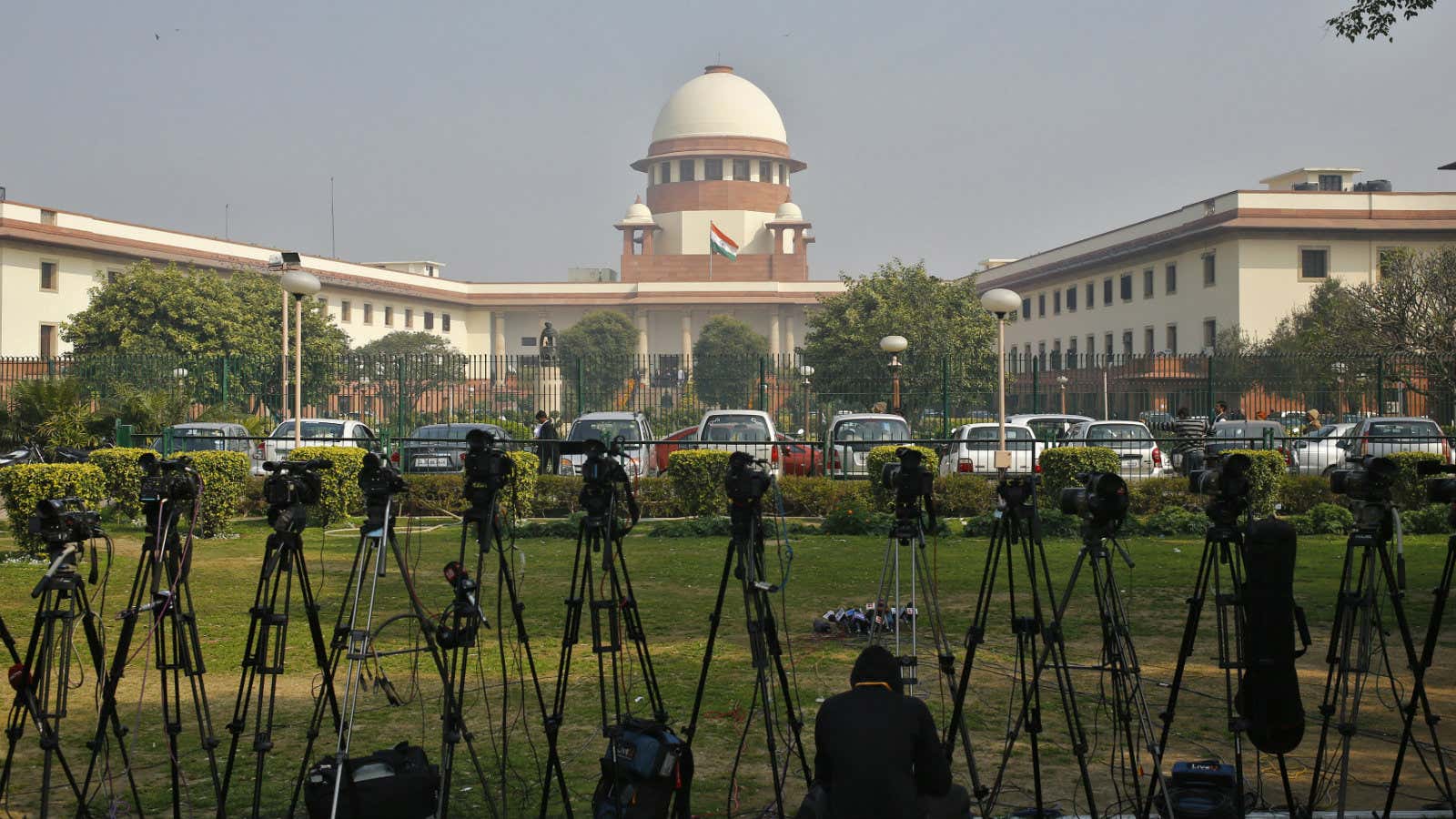Over a decade after NGO Common Clause filed a petition seeking the right for terminally-ill patients “to die with dignity,” India’s supreme court has decreed that passive euthanasia is legally valid across the country.
In a judgment delivered on March 09, the court said patients have the right to refuse life-support instead of prolonging their pain, and that a “living will,” in which they can authorise family members in advance to let them die, should be recognised. The judgment was made by a bench consisting of chief justice Dipak Misra and justices AK Sikri, AM Khanwilkar, DY Chandrachud, and Ashok Bhushanin.
In India, the debate over euthanasia began years ago after the case of Aruna Shanbaug captured national attention. Shanbaug, a nurse, had been left in a vegetative state after being brutally raped and strangled in 1973 at the Mumbai hospital she worked at. For decades after this, she remained in hospital and was fed through her nose twice a day. In 2009, activist and journalist Pinki Virani took up her case and appealed to the supreme court to allow Shanbaugh to die. Though it ultimately refused to do so in 2011, it did pass a landmark judgment back then that opened the door for passive euthanasia in the rarest of rare cases. Shanbaugh herself passed away after 42 years in hospital in May 2015.
Years later, the rules have finally been expanded to take into account the patient’s wishes. Though the Indian government had earlier voiced reservations regarding living wills, saying they could be misused, the court said it will lay down the guidelines for how they should be drafted and implemented.
Meanwhile, the government had said last year that it had prepared a draft bill to allow passive euthanasia. So far, the countries that allow this include the Netherlands and Belgium.
